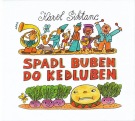Poet, translator, author of children’s books, lyricist, journalist. Twice winner of the Jaroslav Seifert Award (1989, 2011), the State Prize for Literature (2000), the Magnesia Litera in the category of poetry (2004) and the presidential Medal of Merit (2010). He was born in Hřebeč u Kladna on 10 July 1928.
Karel Šiktanc
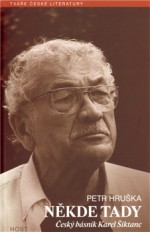
Někde tady. Český básník Karel Šiktanc
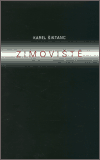
Overwintering
Zimoviště
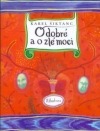
About good and evil power
O dobré a zlé moci
| Title | Publisher | Year | Selected published translations | Awards |
|---|---|---|---|---|
| Na Knížecí (Na Knížecí) | Karolinum | 2014 | ||
| Work 8 (Dílo 8) | Karolinum | 2014 | ||
| Woundwort (Čistec) | Karolinum | 2012 | ||
| Enorm (Nesmír) | Karolinum | 2010 |
2011 Jaroslav Seifert Prize |
|
| Někde tady. Český básník Karel Šiktanc | Host | 2010 | ||
| Castle Candlestick (Hrad Svícen) | Karolinum | 2009 | ||
| A Serious Acquaintance (Vážná známost) | Karolinum | 2008 | ||
| Řeč ne řeč | Karolinum | 2007 | ||
| Work 7 (Dílo 7) | Karolinum | 2006 | ||
| Speaking Standing Up (Řeč vestoje) | Karolinum | 2005 | ||
| The Drum Fell into the Kohlrabi (Spadl buben do kedluben) | Karolinum | 2005 | ||
| Rage (Běseň) | Karolinum | 2005 | ||
| Work 6 (Dílo 6) | Karolinum | 2004 | ||
| Stuff (Fidlátka) | InŽivot | 2004 | ||
| Work 1 (Dílo 1) | Karolinum | 2003 | ||
| Overwintering (Zimoviště) | Karolinum | 2003 |
2004 Magnesia Litera – Poetry |
|
| Work 5 (Dílo 5) | Karolinum | 2002 | ||
| Work 2 (Dílo 2) | Karolinum | 2001 | ||
| Work 3 (Dílo 3) | Karolinum | 2001 | ||
| Work 4 (Dílo 4) | Karolinum | 2000 | ||
| On the Power of Good and Evil (O dobré a zlé moci) | Albatros | 2000 | ||
| About good and evil power (O dobré a zlé moci) | Albatros | 2000 | ||
| Scarlet (Šarlat) | Mladá fronta | 1999 |
2000 State Award for Literature |
|
| Royal Fairy Tales (Královské pohádky) | Albatros | 1994 | ||
| Drowned Eyes (Utopenejch voči) | Československý spisovatel | 1991 | ||
| Blind Love (Slepá láska) | Československý spisovatel | 1968 | ||
| Mr Angel´s Band (Kapela pana Anděla) | SNDK | 1965 | ||
| Memory (Paměť) | Mladá fronta | 1964 | ||
| Tales Scant in Lines (Pohádky chudé na řádky) | SNDK | 1962 | ||
| Pathétique (Patetická) | Mladá fronta | 1961 | ||
| Breakers (Vlnobití) | Československý spisovatel | 1956 | ||
| The Torch of Spring (Pochodeň jara) | Mladá fronta | 1954 | ||
| To You, Life! (Tobě, živote!) | Práce | 1951 |
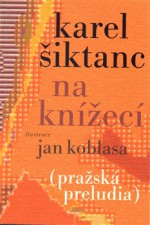
Na Knížecí
Na Knížecí

Work 8
Dílo 8

Woundwort
Čistec

Někde tady. Český básník Karel Šiktanc
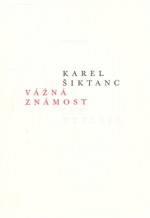
A Serious Acquaintance
Vážná známost
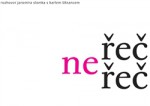
Řeč ne řeč
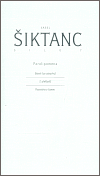
Work 7
Dílo 7
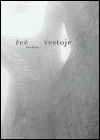
Speaking Standing Up
Řeč vestoje
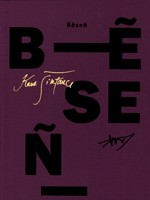
Rage
Běseň
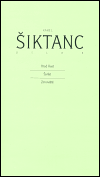
Work 6
Dílo 6
Fidlátka
Karel Šiktanc
Stuff
Fidlátka
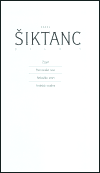
Work 1
Dílo 1

Overwintering
Zimoviště
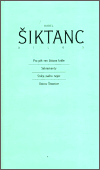
Work 5
Dílo 5
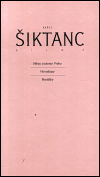
Work 2
Dílo 2
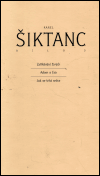
Work 3
Dílo 3
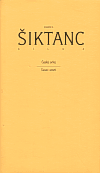
Work 4
Dílo 4
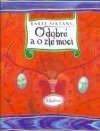
On the Power of Good and Evil
O dobré a zlé moci

About good and evil power
O dobré a zlé moci
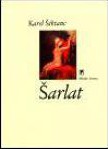
Scarlet
Šarlat
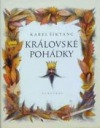
Royal Fairy Tales
Královské pohádky
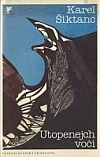
Drowned Eyes
Utopenejch voči
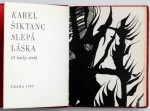
Blind Love
Slepá láska
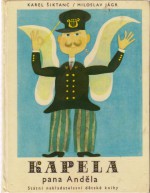
Mr Angel´s Band
Kapela pana Anděla
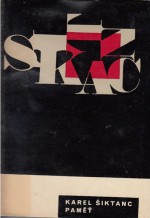
Memory
Paměť
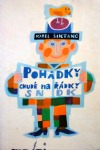
Tales Scant in Lines
Pohádky chudé na řádky
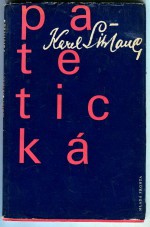
Pathétique
Patetická
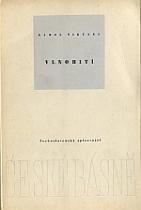
Breakers
Vlnobití
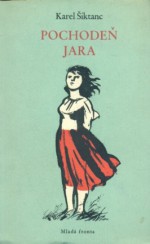
The Torch of Spring
Pochodeň jara
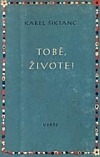
To You, Life!
Tobě, živote!
| Award | Year | Country |
|---|---|---|
| Golden Ribbon Award – Lifetime achievement | 2013 | Česká republika |
| Jaroslav Seifert Prize | 2011 | Česká republika |
| Magnesia Litera – Poetry | 2004 | Česká republika |
| State Award for Literature | 2000 | Česká republika |
Praise
Texts full of anxiety, inquiring about milestones, borders and the nature of humanity... Texts which it is impossible to leave, impossible to stop reading. Stories. When I was at secondary school, I still didn’t know how to digest them. Today I can at least partially manage it – the advantage of the passing of time lies in the fact that we gradually touch more hot wires than we ourselves would like.
—Almanachwagon.cz
His birthplace is near Lidice, which was obliterated by the Nazis in 1942. Šiktanc had many friends among the local children, so this cruel event affected him directly and is reflected in his early work. He started out as a journalist for Czech Radio, was a staff writer for the magazines Květen and Orientace, and from 1961 to 1971 was editor-in-chief of the Mladá fronta publishing house. With the onset of Normalization in the seventies, his decision to sign Charter 77 meant that he became a banned author and his work only came out in samizdat form or through foreign publishing houses. He has written around thirty poetry collections and a similar number of children’s stories, which he has also adapted for television and radio. As poet Petr Hruška writes in his monograph Někde tady (Somewhere Here), “…the poet managed to discover his own form of speech within the Czech language, with its own sound and pronunciation, which speaks to us with the content of long ago and the noises of the present day”.
His first published works were the collections of socialist realist poetry Tobě, živote! (To You, Life!, Práce, 1951), Pochodeň jara (The Torch of Spring, Mladá fronta, 1954) and Vlnobití (Breakers, Československý spisovatel, 1956), but it was only in the collection Žízeň (Thirst, Mladá fronta, 1959) that he began to work with everyday subjects presented without pathos. This was followed by the Lidice theme in the collection Heinovské noci (Heine Nights, Mladá fronta, 1960) and by Horoskopy (Horoscopes, fronta, 1960), in which the author develops a penchant for the subjects of the cycle of the year, human life and nature – these would repeat themselves in his work. Nebožka smrt (The Deceased Death, Mladá fronta, 1963) is inspired by a rural death and funeral; in it the author abandons grandiose history for that of the small and everyday, adding a keen interest in Shrovetide, carnival and enlistment in the army to the countryside ritual of the funeral. The principle of the elements and the passing on of wisdom from generation to generation forms the atmosphere of the collection Artézská studna (Artesian Well, Mladá fronta, 1964), and the world of the countryside also forms the boundaries of the collection Třináct zaříkávání živých (Thirteen Invocations of the Living, Mladá fronta, 1966). The tendency towards mythical subject matter culminates in the collection Adam a Eva (Adam and Eve, Československý spisovatel, 1968). The collection Jak se trhá srdce (How to Rend a Heart, first published in Munich by Poezie mimo Domov, 1983) was set for publication after Šiktanc’s clearly expressed opposition to the occupation of Czechoslovakia by Warsaw Pact forces, but the typesetting for it had already been dismantled and it was not published in his homeland until after the Velvet Revolution, in 1991.
At the beginning of Normalization, Šiktanc wrote an acclaimed collection of twelve scenic poems, Český orloj (The Czech Astronomical Clock, first published in Munich by Kruh přátel české poezie v zahraničí, 1981), in which the author describes myths, traditions and customs associated with the country in a dialogue between a father and son. As poet Petr Hruška writes, “Český orloj is written in a painfully urgent tone; it often has the character of a confession, an order, an entreaty, a prayer, a curse or an incantation. At this time the image of a ravaged world and lost human dignity is becoming the determining space.”
Šiktanc’s following works of poetry return to the landscape and an impoverished world; they emanate blood and death and danger. This is the case with Tanec smrti aneb Ještě Pámbu neumřel (Dance of Death or God Isn’t Dead Yet, samizdat 1979, in Czech by Mladá fronta, 1992), Srdce svého nejez (Don’t Eat Your Heart Out, samizdat 1981, in Czech by Mladá fronta, 1994) and Utopenejch voči (Drowned Eyes, Československý spisovatel, 1991).
After the Velvet Revolution, Šiktanc’s banned collections were published, and between 2001 and 2004 the Karolinum publishing house brought out his complete collected works in seven volumes including the newer collections Zimoviště (Overwintering, 2003), Hrad Kost (Kost Castle, 1995) and Šarlat (Scarlet, 1999) – for which the author received the State Prize for Literature in 2000. In 2014 an eighth publication was added with poetry from the years 2002 – 2008.
For the collection Nesmír (Enorm, Karolinum, 2010), containing the author’s poems from 2007–2010, he received a nomination for a Magnesia Litera. Although one of the central themes of the collection is old age, the verse comes across as fresh and the author has avoided repeating himself. Karel Šiktanc’s most recent book of poetry is the anthology of preludes about Prague named after a street in the Smíchov district, Na Knížecí.
Šiktanc is also well-known for his work for children, and here it is worth mentioning the rhymes in the collection Spadl buben do kedluben (The Drum Fell into the Kohlrabi, Karolinum, 2005) or Královské pohádky (Royal Fairy Tales, Albatros, 1994) and the children’s story O dobré a zlé moci (On the Power of Good and Evil, Albatros, 2000).



